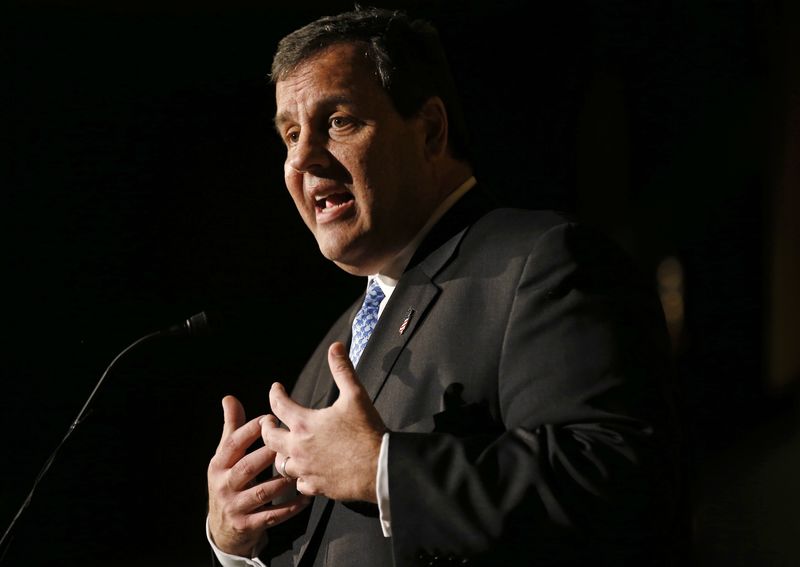NEW YORK (Reuters) - A majority of New Jersey registered voters view Governor Chris Christie unfavorably, a poll showed on Friday, underscoring the headwinds the outspoken Republican could face in securing his party's nomination for the 2016 presidential election.
The poll by Rutgers-Eagleton noted that "for the first time" a majority, 53 percent, were unfavorably inclined toward the governor, according to a statement.
It said 37 percent of registered voters in the state felt favorably toward the governor, down 7 percentage points in two months.
The poll also found more people in the state now disapprove of the job Christie is doing: 52 percent disapprove while 42 percent approve.
Christie has built an image as a tough-talking politician who speaks bluntly to defend his policy goals, but that image has not always struck a chord with voters.
In a late January poll for Bloomberg Politics and The Des Moines Register conducted by Selzer & Co., 36 percent of a sample of likely Iowa voters viewed Christie favorably.
In contrast, more than half the sample, 54 percent, viewed the New Jersey governor unfavorably.
That poll included 402 Republican likely caucus-goers and 401 Democratic likely caucus-goers, with a margin of error of plus or minus 4.9 percentage points.
The Iowa Caucus is typically the first major statewide event to select a national candidate for both major parties and can give momentum to candidates who perform well.
But candidates who do poorly can often find themselves struggling to regain lost ground.
With the likely Republican field already crowded, the eventual nominee will have to fend off a number of challengers along the way.
Besides Christie, several governors or former governors are among possible contenders for the Republican nomination, including, Wisconsin Governor Scott Walker, former Florida Governor Jeb Bush, Louisiana Governor Bobby Jindal and former Texas Governor Rick Perry.

The Rutgers-Eagleton poll included 694 registered voters statewide who were contacted by telephone from Feb. 3-10. The sample has a margin of error of plus or minus 4.2 percentage points.